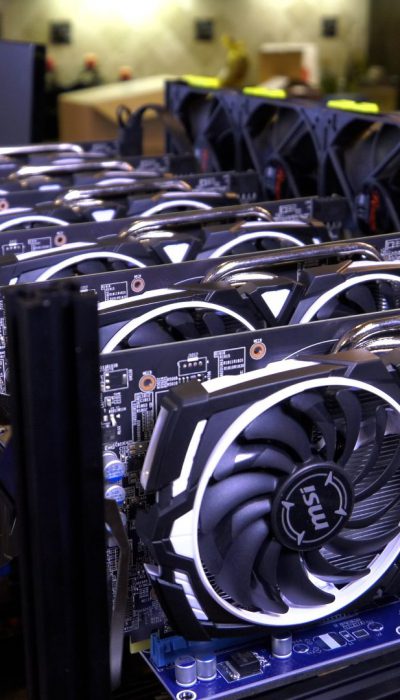
Bitcoin’s Economic Sustainability
Bitcoin’s economic sustainability hinges on the interplay between its decentralized nature, limited supply, and potential as a store of value and medium of exchange. However, scalability challenges, market volatility, and adoption by mainstream institutions pose risks. Technological innovations and enhancements offer potential solutions, but the future outlook remains uncertain. This article explores the data-driven analysis of Bitcoin’s economic viability, providing insights for an audience seeking financial freedom in the digital age. Key Takeaways Bitcoin’s limited supply and decentralization contribute to its value appreciation over time. Understanding the relationship between demand and price is crucial for investors. Bitcoin challenges the existing financial system and offers potential as a store of value. Scalability challenges and regulatory uncertainties hinder Bitcoin’s adoption and efficiency as a medium of exchange. The Decentralized Nature of Bitcoin The decentralized nature of Bitcoin ensures that no single entity has control over the network or the currency, making it resistant to censorship and manipulation. This decentralization is one of the key benefits of Bitcoin and is made possible through the use of blockchain technology. The blockchain is a distributed ledger that records all transactions and is maintained by a network of computers, or nodes, around the world. Each node has a copy of the blockchain, ensuring transparency and preventing any single entity from altering or controlling the network. This decentralized structure provides several advantages. Firstly, it eliminates the need for intermediaries, reducing transaction costs and increasing efficiency. Secondly, it enhances security, as the distributed nature of the network makes it difficult for hackers to manipulate or compromise the system. Lastly, it promotes financial freedom by allowing individuals to have direct control over their money, without the need for traditional banking institutions. Limited Supply and Scarcity Limited supply and scarcity are two key factors that contribute to the unique economic nature of Bitcoin. With a fixed maximum supply of 21 million coins, the scarcity of Bitcoin creates a sense of value appreciation over time. This limited supply also affects the relationship between demand and price, as increased demand for the limited amount of Bitcoin can drive up its price. Understanding the long-term economic implications of limited supply and scarcity is crucial in analyzing the potential impact of Bitcoin on the global financial landscape. Value Appreciation Over Time Bitcoin’s value has consistently appreciated over time, making it an attractive investment option. Here are four key reasons why Bitcoin has seen such significant value appreciation: Limited Supply: Bitcoin’s total supply is capped at 21 million coins, making it a scarce asset. As demand grows, the limited supply drives up its value. Increasing Adoption: Bitcoin has gained widespread recognition and acceptance as a store of value. Institutions and investors are embracing it as a hedge against traditional financial systems, further driving up demand. Market Volatility: Bitcoin’s price volatility has been a double-edged sword. While it may deter some investors, others see it as an opportunity for significant price appreciation. Growing Utility: Bitcoin is increasingly being used as a medium of exchange for goods and services. As more businesses accept Bitcoin as payment, its utility and demand continue to rise. Overall, these factors contribute to Bitcoin’s value appreciation over time, making it an intriguing option for those seeking financial freedom and alternative investment opportunities. Demand and Price Relationship Demand for digital assets like Bitcoin has a direct impact on their price, creating a relationship that fluctuates based on market conditions and investor sentiment. The demand for Bitcoin is influenced by several factors, including investor confidence, regulatory developments, and macroeconomic conditions. Bitcoin’s price elasticity of demand is high, meaning that small changes in demand can result in significant price movements. Market equilibrium is achieved when the quantity demanded equals the quantity supplied at a specific price. When demand exceeds supply, the price of Bitcoin increases, and when supply exceeds demand, the price decreases. Price determination in the Bitcoin market is a complex process that involves the interplay of various factors, including supply and demand dynamics, market sentiment, and external events. Understanding the relationship between demand and price is crucial for investors and traders seeking to navigate the volatile Bitcoin market. Long-Term Economic Implications The long-term implications of digital assets like Bitcoin on the global financial landscape are a subject of ongoing debate among economists and policymakers. Here are four key points to consider: Value Preservation: Bitcoin has gained recognition as a potential store of value due to its limited supply and decentralized nature. Its scarcity and censorship-resistant properties make it attractive as a means of preserving wealth. Inflation Protection: Bitcoin’s design includes a fixed supply of 21 million coins, making it immune to inflationary pressures caused by central banks’ monetary policies. This feature offers individuals an alternative to traditional currencies that may be subject to devaluation over time. Global Financial Disruption: Bitcoin’s decentralized nature challenges the existing financial system, which relies on intermediaries like banks. By bypassing these intermediaries, Bitcoin has the potential to disrupt traditional banking and remittance services, increasing financial inclusion and reducing transaction costs. Regulatory Challenges: Policymakers face the challenge of striking a balance between regulating Bitcoin to prevent illicit activities, while also fostering innovation and technological progress. Determining the appropriate regulatory framework for digital assets remains an ongoing challenge. As the debate on Bitcoin’s long-term implications continues, understanding its potential for value preservation and inflation protection, as well as the challenges it presents to the existing financial system, is crucial for policymakers and individuals alike. Store of Value Potential One important aspect to consider when evaluating bitcoin’s economic sustainability is its potential as a store of value. As a decentralized digital currency, bitcoin offers individuals the ability to store and preserve their wealth outside of traditional financial systems. This has led to its increasing popularity as an alternative investment option. However, it is important to acknowledge the potential risks associated with bitcoin as a store of value. The volatility of its price and the lack of regulatory oversight pose significant challenges. Investors must carefully evaluate these risks before considering bitcoin as a long-term investment opportunity. Despite these challenges, the potential for significant returns and the increasing acceptance of bitcoin in mainstream financial institutions make it an intriguing option for those seeking freedom and alternative investment opportunities. Medium of Exchange Considerations Medium of exchange considerations play a crucial role in determining the effectiveness of a currency. For Bitcoin, scalability challenges have emerged as a significant hindrance to its widespread adoption as a medium of exchange. The ability of Bitcoin to handle a large volume of transactions quickly and efficiently, along with gaining acceptance from merchants, will be key factors in determining its success in becoming a widely used medium of exchange. Scalability Challenges for Bitcoin Bitcoin’s scalability challenges have been a topic of concern within the cryptocurrency community. As the popularity and usage of Bitcoin continue to grow, the network has struggled to handle the increasing number of transactions efficiently. This has resulted in high transaction fees and longer confirmation times, hindering Bitcoin’s ability to function as an efficient medium of exchange. To address these challenges, several scalability solutions have been proposed and implemented: Segregated Witness (SegWit): This upgrade separates transaction signatures from the transaction data, allowing more transactions to be included in each block. Lightning Network: This layer-two solution enables off-chain transactions, reducing the burden on the main blockchain and increasing throughput. Schnorr signatures: This cryptographic technique allows multiple signatures to be combined into a single signature, further reducing transaction size and improving scalability. Increased block size: Some proponents argue for increasing the block size limit, which would allow more transactions to be included in each block, but this solution has faced opposition due to concerns about centralization and network security. Adoption and Merchant Acceptance The increasing adoption and acceptance of cryptocurrencies by merchants has sparked discussions about the potential impact on traditional payment systems. While cryptocurrencies offer benefits such as lower transaction fees and faster settlement times, there are also adoption challenges and concerns regarding consumer protection that need to be addressed. One of the main adoption challenges is the limited number of merchants accepting cryptocurrencies. According to a survey conducted by HSB Bank, only 36% of small businesses in the United States accept cryptocurrencies as a form of payment. This low adoption rate can be attributed to factors such as price volatility, regulatory uncertainty, and the lack of infrastructure for cryptocurrency transactions. Consumer protection is another important consideration in the adoption of cryptocurrencies. Due to the decentralized nature of cryptocurrencies, there is a higher risk of fraud and scams. The absence of a central authority to regulate transactions and resolve disputes can leave consumers vulnerable to fraudulent activities. However, efforts are being made to enhance consumer protection through the development of regulatory frameworks and the implementation of security measures by cryptocurrency exchanges. In conclusion, while the adoption of cryptocurrencies by merchants is increasing, there are still challenges to overcome, such as limited acceptance and concerns about consumer protection. Addressing these challenges will be crucial in ensuring the widespread adoption of cryptocurrencies as a viable payment system. Adoption Challenges Consumer Protection Limited number of merchants accepting cryptocurrencies Higher risk of fraud and scams Price volatility and regulatory uncertainty Absence of a central authority for dispute resolution Lack of infrastructure for cryptocurrency transactions Efforts to enhance consumer protection through regulations and security measures Scalability Challenges and Solutions Scalability challenges have been a significant hurdle for the economic sustainability of bitcoin. As the popularity of bitcoin has grown, the network has struggled to handle the increasing number of transactions, resulting in slower transaction processing speed and higher fees. To address these challenges, several scalability solutions have been proposed and implemented: Segregated Witness (SegWit): This solution separates transaction data from signature data, reducing the size of transactions and allowing for more efficient use of block space. Lightning Network: This off-chain scaling solution enables faster and cheaper transactions by creating payment channels that can process transactions without the need for every transaction to be recorded on the blockchain. Schnorr signatures: This proposal aims to improve the efficiency of signature verification, allowing for more transactions to be processed within a block. Layer 2 solutions: These solutions, such as sidechains and state channels, aim to alleviate congestion on the main blockchain by moving some transactions off-chain. Energy Consumption and Environmental Impact Energy consumption and its environmental impact are critical factors that need to be addressed in order to ensure sustainable development. The growing demand for energy, particularly in the context of digital technologies and cryptocurrencies like Bitcoin, has raised concerns about the carbon footprint and environmental consequences associated with their operation. In response, various energy efficiency solutions, renewable energy adoption, and mitigations for environmental consequences have been proposed to minimize the negative impact of energy consumption. Energy Efficiency Solutions One potential solution to increase the economic sustainability of bitcoin is through implementing energy-efficient practices. By reducing the energy consumption associated with bitcoin mining, the environmental impact can be minimized while also improving the long-term viability of the cryptocurrency. Here are four energy efficiency solutions that can contribute to achieving this goal: Hardware optimization: Upgrading mining equipment to more energy-efficient models can significantly reduce energy consumption. Cooling solutions: Implementing innovative cooling technologies, such as immersion cooling or liquid cooling, can improve energy efficiency by reducing the need for air conditioning. Mining pool consolidation: Encouraging miners to join larger pools can reduce redundant energy consumption and increase overall efficiency. Energy management systems: Utilizing smart energy management systems can help monitor and control energy usage, optimizing efficiency and reducing waste. Renewable Energy Adoption Renewable energy adoption plays a crucial role in reducing the environmental footprint of cryptocurrency mining operations. As the demand for cryptocurrencies like Bitcoin continues to rise, so does the energy consumption associated with their mining. However, the use of renewable energy sources can help mitigate this impact and contribute to carbon footprint reduction. According to a study by CoinShares, it is estimated that 74.1% of Bitcoin mining is powered by renewable energy sources, such as hydropower and solar power. This shift towards renewables is driven by both environmental concerns and cost savings. Renewable energy sources not only offer a greener alternative but can also provide a more stable and cost-effective energy supply for mining operations. Environmental Consequences Mitigations The mitigation of environmental consequences associated with cryptocurrency mining is a pressing concern that requires immediate attention and action. To address this issue, there are several strategies that can be implemented to make mining more energy efficient and reduce its carbon footprint: Energy efficient mining hardware: The development and adoption of more energy-efficient mining hardware can significantly reduce the energy consumption of cryptocurrency mining operations. Renewable energy sources: Encouraging the use of renewable energy sources, such as solar or wind power, can help minimize the environmental impact of mining by reducing reliance on fossil fuels. Carbon offset initiatives: Investing in carbon offset initiatives, such as reforestation projects or renewable energy projects, can help offset the carbon emissions generated by cryptocurrency mining. Regulatory incentives: Governments can provide regulatory incentives to promote energy-efficient mining practices and encourage miners to adopt environmentally friendly strategies. Regulatory Landscape and Legal Frameworks The regulatory landscape and legal frameworks surrounding bitcoin’s economic sustainability are constantly evolving. Bitcoin operates in a decentralized manner, making it challenging for traditional regulatory frameworks to adapt. Regulatory challenges arise due to the lack of centralized control over bitcoin transactions, leading to concerns about money laundering, tax evasion, and fraud. Governments around the world are grappling with the legal implications of bitcoin, as they aim to strike a balance between consumer protection and fostering innovation. Some countries have taken a proactive approach by introducing regulations to ensure the legitimacy and security of bitcoin transactions. However, others have imposed strict regulations, stifling the growth of the cryptocurrency. As the popularity of bitcoin continues to rise, finding a regulatory balance that supports economic sustainability while safeguarding against illicit activities remains a significant challenge. Market Volatility and Manipulation Risks Market volatility and manipulation risks pose significant challenges for regulators and investors alike, as they navigate the unpredictable nature of cryptocurrency markets. To better understand these risks, consider the following: Lack of regulation: The decentralized nature of cryptocurrencies makes it difficult to enforce market regulations and prevent manipulation. Price manipulation: Cryptocurrency markets are susceptible to price manipulation due to their relatively low liquidity and lack of oversight. Pump and dump schemes: Unscrupulous actors can artificially inflate the price of a cryptocurrency, enticing others to invest before quickly selling off their holdings and causing prices to plummet. Insider trading: Insider information can be used to manipulate cryptocurrency markets, leading to unfair advantages for certain individuals or groups. These challenges highlight the need for robust market regulation to protect investors and ensure fair and transparent trading practices. In the next section, we will explore the adoption and acceptance of cryptocurrencies by mainstream institutions, which could potentially mitigate some of these risks. Adoption and Acceptance by Mainstream Institutions Mainstream institutions are increasingly recognizing the potential of cryptocurrencies as a new asset class with unique investment opportunities. However, the adoption of cryptocurrencies by these institutions is not without its challenges. One of the major hurdles is the regulatory landscape surrounding cryptocurrencies. The lack of clear and consistent regulations creates uncertainty for institutions, making them hesitant to fully embrace cryptocurrencies. Additionally, the decentralized nature of cryptocurrencies poses challenges in terms of compliance and risk management. Institutions need to navigate through the complex web of regulations, anti-money laundering laws, and know-your-customer requirements. Moreover, the volatile nature of cryptocurrencies adds another layer of complexity, making it difficult for institutions to assess the risks and potential returns. Despite these challenges, the increasing interest from mainstream institutions indicates the growing acceptance of cryptocurrencies as a legitimate investment asset class. Technological Innovations and Enhancements Technological advancements in the cryptocurrency space have facilitated faster and more secure transactions, opening up new possibilities for businesses and individuals alike. Here are 4 key technological advancements that have contributed to the growth and development of the cryptocurrency ecosystem: Blockchain Integration: The integration of blockchain technology into cryptocurrencies has revolutionized the way transactions are recorded and verified. Blockchain provides a decentralized and transparent ledger that ensures the integrity and immutability of transactions. Scalability Solutions: The scalability issue has been a major challenge for cryptocurrencies like Bitcoin. However, technological advancements such as the Lightning Network and sharding have offered solutions to increase the transaction throughput and improve network efficiency. Privacy Enhancements: Privacy is a significant concern in the cryptocurrency space. Innovations like zk-SNARKs and bulletproofs have been developed to enhance privacy and confidentiality in transactions, providing users with greater control over their financial information. Improved Security Measures: With the integration of advanced encryption algorithms and multi-signature wallets, the security of cryptocurrency transactions has significantly improved. These measures protect users from hacks and ensure the safety of their digital assets. As technological advancements continue to evolve, the future outlook and economic viability of cryptocurrencies are becoming increasingly promising. Future Outlook and Economic Viability As we look ahead to the future implications of Bitcoin’s economic sustainability, it is crucial to consider the potential for significant economic growth. The decentralized nature of Bitcoin and its underlying technology, blockchain, has the potential to revolutionize various industries and economies worldwide. One of the key aspects of Bitcoin’s future outlook is its ability to provide financial freedom and inclusion to individuals who may not have access to traditional banking services. This can lead to increased economic activity and growth in regions where financial services are limited. Furthermore, the scarcity of Bitcoin, with a limited supply of 21 million coins, can drive its value up over time, making it an attractive investment option. This increased demand can fuel economic growth by attracting capital and fostering innovation in the cryptocurrency space. As the global economy becomes increasingly digitized, Bitcoin’s potential as a secure and borderless digital currency opens up new avenues for economic transactions. Its decentralized nature also makes it resistant to government interference, giving individuals the freedom to transact without fear of censorship or control. Frequently Asked Questions What Is the Current Market Price of Bitcoin? The current market price of Bitcoin is determined by various factors such as current market trends, investor sentiment, and the impact of regulatory changes. It is a volatile asset that can experience significant price fluctuations. How Does the Blockchain Technology of Bitcoin Work? The blockchain technology of Bitcoin operates on a decentralized ledger, utilizing cryptographic algorithms to ensure secure transactions. It offers a transparent and immutable record of all transactions, enabling trust and eliminating the need for intermediaries. Can Bitcoin Be Used for Illegal Activities? Bitcoin’s impact on the global economy is a topic of debate. While some argue that its decentralized nature allows for financial freedom, others raise concerns about its potential use in illegal activities. The regulation of bitcoin varies across different countries. What Are Some Potential Risks and Security Concerns Associated With Bitcoin? Potential risks and security concerns associated with Bitcoin include regulatory challenges and scalability issues. Regulatory challenges arise due to the decentralized nature of Bitcoin, while scalability issues refer to the network’s ability to handle increasing transaction volumes efficiently. How Does Bitcoin Compare to Traditional Fiat Currencies in Terms of Stability and Reliability? Bitcoin’s impact on the global economy is significant, as it has the potential to disrupt traditional financial systems. When comparing stability and reliability to traditional fiat currencies, Bitcoin’s decentralized nature and limited supply provide unique




















